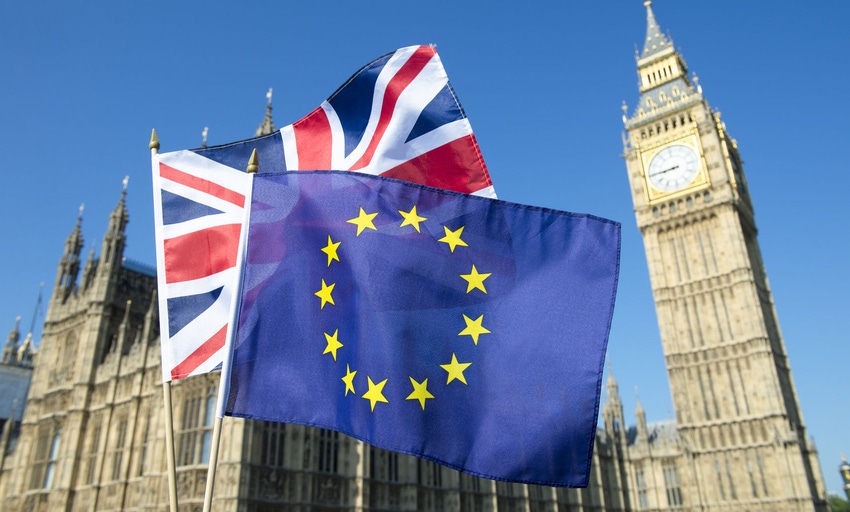EU decision on failed UK telecoms merger muddies regulatory waters
A European court has thrown out a previous verdict on a case linked to the long-abandoned proposed merger between Three and O2 in the UK, making the regulatory climate even more difficult to predict at a time when telco tie-ups are once again making headlines.
July 13, 2023

A European court has thrown out a previous verdict on a case linked to the long-abandoned proposed merger between Three and O2 in the UK, making the regulatory climate even more difficult to predict at a time when telco tie-ups are once again making headlines.
Hong Hong’s Hutchison brought a legal challenge against the European Commission after the EU’s executive arm in May 2016 vetoed its £10 billion-plus deal to acquire O2 UK with a view to merging it with Three. Initially it got the result it wanted, the EU’s General Court ruling in its favour, but the Commission hit back and now seems to be getting its own way.
Specifically, the EU Court of Justice on Thursday revealed that it has annulled the decision made by the General Court more than three years ago and sent the case back to be looked at again.
This latest decision is based on a point of law – the General Court made errors in law, the judgement, published by the EU, shows – which makes it difficult to make a call on what its impact might be, if indeed any, on any current or future telco mergers in the EU. But that won’t stop the industry from trying; we’re all desperate for any sign of which way the Commission will jump on telecoms M&A from here on in.
Executive Vice-President Margrethe Vestager put out a statement in the decision today, which said: “The importance of this judgment goes far beyond the specific circumstances and mobile communications sector affected by the Commission’s decision, regarding which there have been many changes in the meantime, including the fact that the UK is no longer an EU Member State.
“Today’s judgment clarifies a fundamental question that was at the heart of the reform leading to the 2004 EU Merger Regulation nearly 20 years ago: when do transactions which do not create or strengthen a dominant market position give rise to a significant impediment of effective competition? This is the first time the Commission’s approach to these so-called ‘gap’ cases has been assessed by the Court of Justice. The Court has now confirmed our interpretation of several crucial elements of our approach to these cases.”
The ongoing Orange/MasMovil merger in Spain is being widely viewed as a bellwether for in-market telecoms consolidation within the EU.
The pair agreed to form a 50:50 joint venture almost exactly a year ago, but there were doubts from the outset that the deal would find favour in Brussels. The Commission opened an in-depth investigation in April, expressing concerns that the deal could harm competition, and – with its final judgement due in September – published a Statement of Objections last month, reiterating those competition concerns.
Historically, the EU has been opposed to a reduction in facilities-based competition in national telecoms markets, sticking rigidly to the idea that consumers are best served when they have a choice of four players. The Spain deal would create a three-player market, barring any related remedies to facilitate a new entrant, and it’s on that point – which arguably better serves telcos – that the industry is so keen to gain some clarity.
The General Court erred in the way it measured the potential impediment to competition when looking at the Three/O2 deal, according to the Court of Justice verdict. But that doesn’t necessarily mean that its opinion – essentially that the Commission failed to prove that the O2/Three deal would harm competition – was incorrect. It just means it has to look at it again.
Which in turn means that the regulatory picture is still as clear as mud. For now, at least.
One thing is pretty clear though: we will get an answer on the Orange/MasMovil deal, and therefore a bigger clue as to the chances of success of in-market consolidation elsewhere – before this case draws to a close.
It has been more than seven years since that initial European Commission block on the Three/O2 merger and there has been a lot of water under the bridge for both companies since then. O2 is now part of Virgin Media O2, a deal that brought together a fixed and a mobile player, and therefore drew less regulatory scrutiny. And Hutchison is busy trying to garner regulatory support for the merger of Three with Vodafone in the UK, a deal that was finally announced just last month after endless speculation.
It’s the UK government that the companies need to get on side in that merger, but the powers that be are also doubtless watching events in Brussels pretty closely and have their own concerns about market competition.
We are getting to a point at which we should have some answers – albeit at a snail’s pace – but for now we’re no clearer on whether competitive telcos will be allowed to merge or not.
Get the latest news straight to your inbox. Register for the Telecoms.com newsletter here.
About the Author(s)
You May Also Like











_1.jpg?width=300&auto=webp&quality=80&disable=upscale)


.png?width=800&auto=webp&quality=80&disable=upscale)